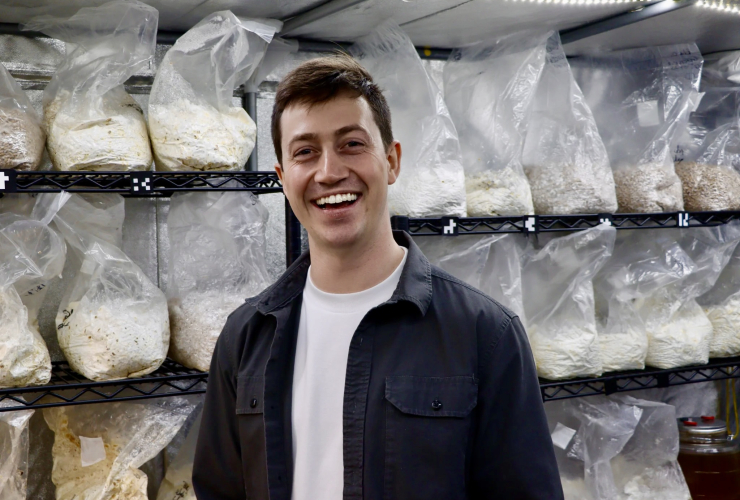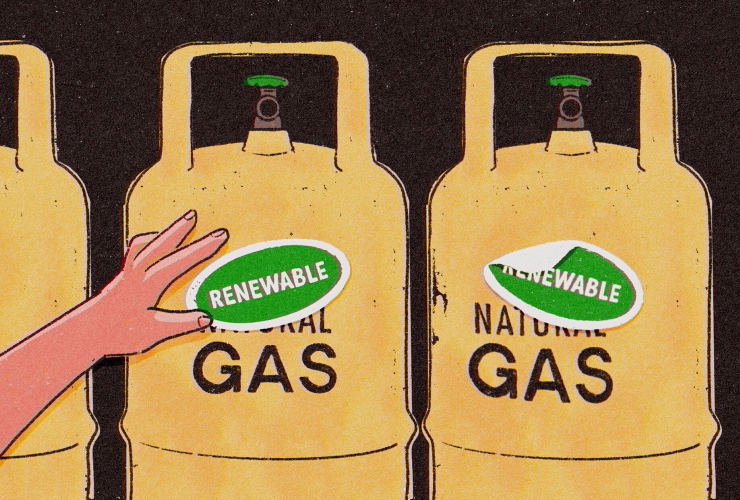Marc Fawcett-Atkinson

Journalist | Vancouver |
English
French
About Marc Fawcett-Atkinson
Marc Fawcett-Atkinson is a reporter and writer covering food systems, climate, disinformation, and plastics and the environment for Canada’s National Observer.
His ongoing investigations of the plastic industry in Canada won him a Webster Award's nomination in environmental reporting in 2021. He was also a nominee for a Canadian Association of Journalists's award for his reporting on disinformation.
Marc has previously written for High Country News, the Literary Review of Canada, and other publications on topics exploring relationships between people and their social and physical environments.
He holds an M.A. in journalism from the University of British Columbia and a B.A. in Human Ecology from the College of the Atlantic.
Meet the man turning mushrooms into meat
Mycelium has recently burst into the spotlight, with proponents saying it offers remedies to some of the ills of industrialization, like plastic pollution.
Reducing food waste and meat consumption could solve world hunger
Nearly all the world's population could eat well from food produced within their countries’ borders — if countries wasted less food and ate less meat and sugar, researchers have found. In Canada, we would need less than a sixth of our farmland to feed everyone in the country a healthy and climate-friendly diet.
Biologist’s ‘no-regret strategies’ seek to protect the planet with seaweed
For the past several months, Carlos Drews has been trying to figure out how to transform barren bits of B.C. seafloor into vibrant forests of kelp that sequester carbon and bolster biodiversity.
Is ‘renewable’ natural gas a climate solution — or masterful greenwashing?
Each time Tim Crossin turns on his gas fireplace to heat the modest home he shares with his partner, the avowed environmentalist "assuages" his climate guilt with a reminder that he is paying a premium for so-called "renewable" natural gas.
Who benefits from Ottawa’s plan to tackle food insecurity?
On grocery store shelves in Iqaluit, Nunavut, it is hard to find enough lettuce for a family-sized salad for less than 10 bucks. In more remote parts of the northern territory, basic items like an eight-pack of juice — or a handful of fresh veggies — can go for nearly $40.
The collapse of the Very Good Food Company
Late last month, Mitchell Scott watched from afar as the company he had nurtured from a farmer's market vegan "butcher" shop to a darling of Canada's nascent plant-based meat industry collapsed.
Cross-country flights, confidentiality affidavits and handwritten notes. One woman’s Byzantine quest to see Ottawa’s pesticide data
When Sheryl McCumsey set out to learn about the health and environmental impacts of pesticides used in Canada, she did not expect a wild goose chase.
White men identified as super-spreaders of climate denialism, contributing disproportionately
There is a tight relationship between harmful forms of masculinity, right-wing extremism and the refusal to deal with the climate crisis.
Are the carbon credits Trans Mountain bought now worth less than cow burps?
Trans Mountain's decision to buy voluntary offset credits from a startup like Synergraze is "super problematic," said Kate Ervine, a professor at Saint Mary's University. But even purchasing government-regulated carbon credits wouldn't outweigh the climate impact of Trans Mountain's push to expand oil pipeline infrastructure during the climate crisis.
The thin green line — where disinformation meets greenwashing
For nearly 50 years, the push to discredit climate science and transform responses to the crisis into a political hot potato has successfully delayed policies to reduce oil and gas production and greenhouse gas emissions.










